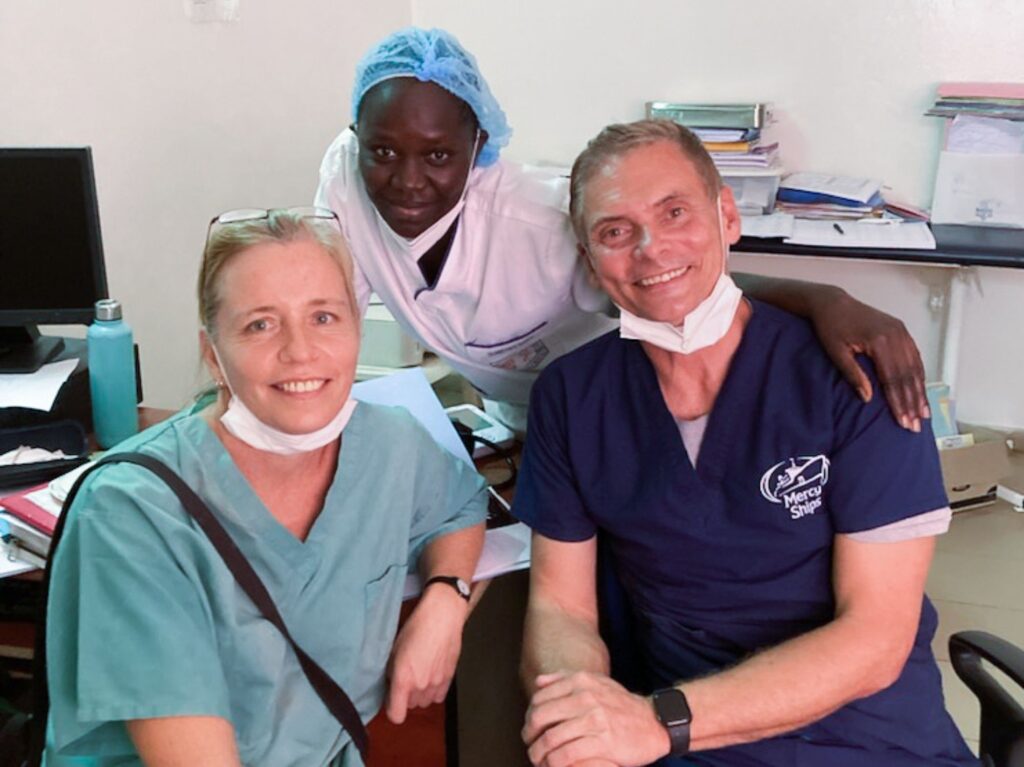Are you aware the fertility rate throughout the world is on a steady decline? The current global fertility rate in 2022 is 2.428 births per women, a 0.41% decline from 2021. There has been a consistent decline by 0.41% over the last three years. Some causes may include ovulation disorders, uterine and cervical abnormalities, fallopian tube damage or blockage just to name a few. Diagnosis and subsequent treatment can address these issues which may lead to improved fertility rates as a result.
Now imagine struggling with infertility in a country that has deemed this medical issue as socially stigmatized. Currently, the fertility rate in the West African country of Senegal is 4.404 births per woman which is a 1.37% decline from 2021 and has had a similar decline each year over the last couple of decades. The effects of infertility can cut deep for Senegalese women living in an area of the world that defines womanhood by having children.
Unfortunately, many Senegalese couples do not have the medical or financial resources to properly identify the barriers blocking a successful pregnancy. Thankfully, there are unsung heroes in the world who dedicate their time and talent addressing these heartbreaking problems.
Today we would like to sing the praises of Jeff Gunderson, MS, RDMS, RVT, RTR, Program Director of the Diagnostic Medical Sonography Program at the St. Cloud Technical and Community College in Minnesota. Jeff has over 35 years in sonography and is on the Board of the International Foundation for Sonography Education and Research (IFSER) as well. Jeff recently went to Barthimee Hospital, a small Christian hospital in Thies, Senegal, where he trained some of the clinical staff on sonohysterography (saline infused sonography) using the HSG Catheter, used to diagnose infertility problems. “Fertility is really important in Senegal,” said Jeff.
Through sponsorship from Mercy Ships, a non-profit organization focused on bringing hope and healing to developing areas of the world, Jeff was able to train a group of physicians the function of ultrasound and sonohysterography using the Thomas Medical HSG Catheter. These catheters are used to diagnose infertility in women by detecting occlusions, perforations, and abnormalities in the uterus and fallopian tubes while utilizing ultrasound technology.
Jeff began his profession in radiology then gravitated towards sonography. “I developed an interest and love for sonography in the 1980’s when my wife had an ultrasound,,” explained Mr. Gunderson. “Sonography has changed over the years with great advancements in image quality and 4D capabilities. Devices such as the Thomas Medical HSG Catheter allowed our team to quickly identify obstructions or blockages that may be preventing a successful pregnancy for the patient,” Jeff said.
Jeff worked closely with an Australian physician, Dr.Roslyn Mackenzie, on this 2-week mission at Barthimee Hospital. Dr. Mackenzie, a GP Obstetrician, has worked at the hospital for close to 9 years as a volunteer. She came to West Africa 14 years ago accompanying her husband and his work. “There is high prevalence of infertility in Senegal,” she explained. “There may be a variety of reasons for either a woman’s or man’s infertility such as tubal disease, uterine abnormalities, ovulation problems, low sperm count. However, the male partner may be reluctant to attend any medical consultation where an infertility problem is suspected. Cultural differences and social stigmatization associated with infertility can leave Senegalese women feeling alone and sometimes abandoned as their husbands may take another wife,” said Dr, Mackenzie. “In addition to that, follow-up treatment is not affordable or a viable option for most,” she explained.
Fortunately, through the work and volunteerism of Jeff and the clinical team at Barthimee Hospital, a proper diagnosis can provide an answer and, hopefully, initiate a treatment plan
“This mission has been such a great learning experience for everyone,” explained Jeff. The program has been critical for women in that region of the world who are holding onto hope of identifying the problem so they can seek treatment.
Without this essential care and attention, Senegalese women may never have a chance at fulfilling their dreams of having a child. Now, with the help of such resources as Mercy Ships, experts like Jeff Gunderson, Dr. Roslyn Mackenzie and other clinical practitioners at Barthimee Hospital, many women can finally feel hope.
World Fertility Rate 1950-2022 | MacroTrends
Senegal Fertility Rate 1950-2022 | MacroTrends
Infertility – Symptoms and causes – Mayo Clinic
Flexible HSG Catheter – Thomas Medical Flexible HSG Catheter





